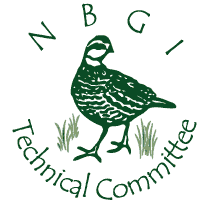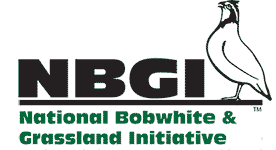“Bobwhites on the Brink,” a five-part series by the syndicated television conservation news magazine This American Land airing this fall, examines the reasons for the decline of the iconic northern bobwhite and efforts to restore it on the American landscape.
The National Bobwhite Conservation Initiative (NBCI) and various states worked over a period of months to help develop the story. Crews visited South Carolina, Texas, Kentucky and Kansas to illustrate how a decline in active forest management, the conversion of livestock grazing operations from native grasses to exotic fescue across millions of acres at taxpayer expense, and the hyper-growth of mechanized clean-farming techniques in row crop agriculture over time have combined to decimate habitat range-wide for bobwhites and other grassland birds and wildlife species.
In the first segment (#601), the show examines forest management trends, which have seen the majority of grassy forest and woodland savannas that historically harbored bobwhites and numerous other species dwindle to a tiny fraction of their original range, often to be replaced with overgrown, stagnant and unhealthy forests ripe for wildfires and insect invasions. Wildlife and forest managers in South Carolina show how thinning and regular prescribed fire are bringing “bob” back to the woods.
The second segment (#602) illustrates how ranchers in Texas are successfully grazing livestock in pastures of native grasses alongside bobwhites, in contrast to producers in many other states who have replaced native grasses with the exotic fescue, which offers little for wildlife and has detrimental impacts on cattle health.
Segment three (#603) visits the epicenter of fescue, Kentucky, to observe what fescue has done to the landscape there and in other states, and how some producers are reverting to native grasses to benefit not only cattle growth and health but also bobwhites and other grassland species.
Segment four (#604) takes viewers to Kansas to see how agricultural operations in the U.S. have morphed from small field/multi-farm operations to giant corporate expanses of row crop acreage, and how Kansas is leading the country in demonstrating how bobwhite habitat can still be successfully integrated on these working lands.
The last segment (#605) summarizes the issues and obstacles that have pushed bobwhites and other grassland species from the landscape, and the strategies being used by a multitude of states and the NBCI to ensure their continued role in rural American life.
“We hope this effort will move public understanding up a notch on what has happened to the bobwhite and an array of other grasslands wildlife species, including pollinators, and what we all can do to ensure this iconic bird remains on our nation’s rural landscapes,” said NBCI Director Don McKenzie.
Because This American Land is a syndicated program, not all public television stations broadcast it. If they do subscribe to the program they also have the option to air it on dates and at times of their choosing, so viewers are encouraged to check the programming schedule of their local public television affiliate.
The series (#601, #602, #603, #604, #605) can also be viewed on the This American Land website at http://www.thisamericanland.org/Episodes/season-six, on NBCI’s YouTube channel at https://www.youtube.com/user/BringBackBobwhites or on the NBCI website at https://nbgi.org/category/the-bobwhite-library/videos/nbci-bobwhite-theater/
Copies of the programming are also being distributed to the quail coordinators of the 25 NBCI states for use in the field with a variety of audiences.
For more information about NBCI, please visit www.bringbackbobwhites.org.
About NBCI
Headquartered at the University of Tennessee Institute of Agriculture’s Department of Forestry, Wildlife and Fisheries, NBCI is an initiative of the National Bobwhite Technical Committee (NBTC) to elevate bobwhite quail recovery from an individual state-by-state proposition to a coordinated, range-wide leadership endeavor. The committee is comprised of representatives of 25 state wildlife agencies, various academic research institutions and private conservation organizations. Support for NBCI is provided by the Federal Aid in Wildlife Restoration Program, state wildlife agencies, the University of Tennessee and Park Cities Quail. For more information, please visit www.bringbackbobwhites.org and find us on Facebook, YouTube and Slideshare.

